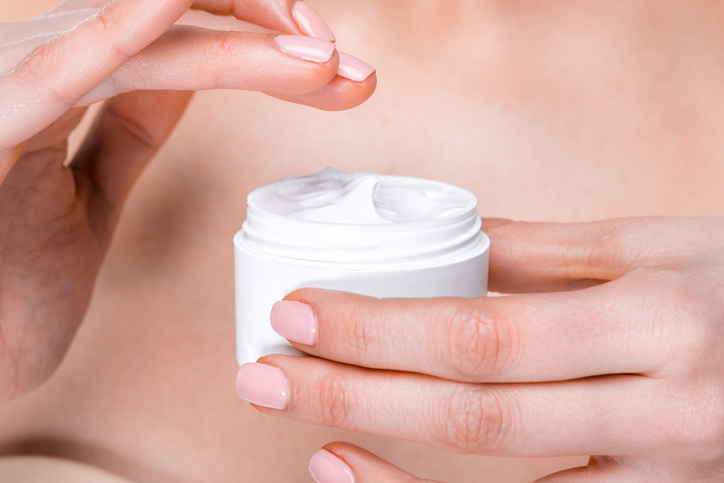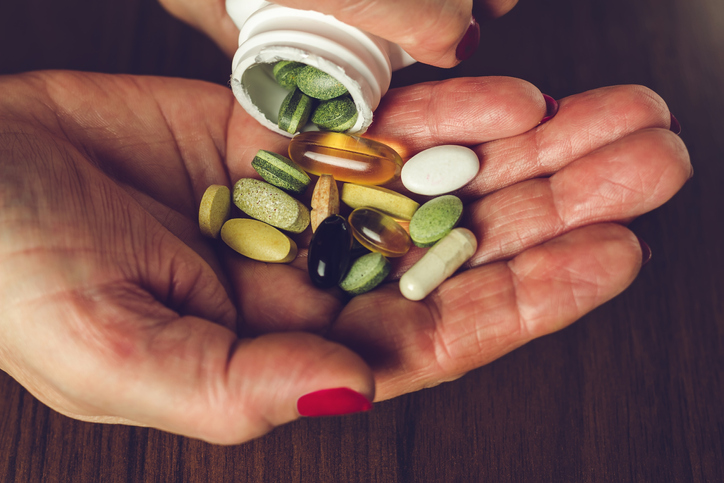Natural Methods to Manage Menopause Symptoms
Tend to your menopause discomfort with natural menopause remedies that’ll help ease your symptoms.
Hot flashes in the middle of a brisk, autumn day? Tossing and turning all night long even when you feel relaxed? Do you find yourself growing impatient while driving or waiting in line? You are not alone. While these symptoms may be explained by other factors, women commonly experience them during menopause.
Understanding Menopause and Perimenopause
 Menopause is defined as the loss of a period for 12 consecutive months. The time leading up to this transition is referred to as perimenopause. In both phases, women may experience many new symptoms including hot flashes, irregular sleep, a shift in mood, increased irritability, weepiness, anxiety, depression, loss of libido, and vaginal dryness.
Menopause is defined as the loss of a period for 12 consecutive months. The time leading up to this transition is referred to as perimenopause. In both phases, women may experience many new symptoms including hot flashes, irregular sleep, a shift in mood, increased irritability, weepiness, anxiety, depression, loss of libido, and vaginal dryness.
The good news is that natural medicine offers complementary therapies that can make this transition a smooth one. In practice as naturopathic doctors, we have seen many natural interventions address these symptoms and ultimately improve quality of life.
Dealing with dryness with Natural Menopause Remedies
 One of the most uncomfortable symptoms associated with menopause is vaginal dryness, also known as atrophic vaginitis. As estrogen levels decline, the skin around the vaginal area can become more sensitive. This is a result of the vaginal tissue becoming thinner. Patients will report dryness, itchiness, burning, painful intercourse, and often increased yeast or urinary tract infections. Besides the commonly recommended estrogen creams, we find a compounded formulation of hyaluronic acid vaginal gel to be an effective treatment option.
One of the most uncomfortable symptoms associated with menopause is vaginal dryness, also known as atrophic vaginitis. As estrogen levels decline, the skin around the vaginal area can become more sensitive. This is a result of the vaginal tissue becoming thinner. Patients will report dryness, itchiness, burning, painful intercourse, and often increased yeast or urinary tract infections. Besides the commonly recommended estrogen creams, we find a compounded formulation of hyaluronic acid vaginal gel to be an effective treatment option.
For those searching for a non-hormonal treatment, topical hyaluronic acid may be the solution. A randomized, controlled research study in Switzerland demonstrated that hyaluronic acid vaginal gel was not only effective for improving vaginal dryness but also maintained the health of the vaginal microenvironment when compared to estrogen creams. In our practice, we work with compounding pharmacists across Ontario who create customized hyaluronic acid prescriptions tailored specifically to a woman’s needs. Continued use for a few weeks is recommended but some patients find relief quickly. Estrogen creams are also effective, but this option may be more appealing for patients who want to avoid any hormonal prescriptions.
Save your skin
 Have you ever felt like your skin was changing from oily to dry or seen the appearance of wrinkles overnight? Did you know that there is a 30 percent decline in skin collagen in the first five years after menopause? As a result, there is a loss of skin elasticity. Collagen is the most abundant protein in your body. Collagen can be injected into the face or lips to create a more youthful appearance. It is often added to face and body creams. As naturopathic doctors, we like to focus on beauty from the inside out, so we often recommend a collagen supplement that can be easily added to the diet.
Have you ever felt like your skin was changing from oily to dry or seen the appearance of wrinkles overnight? Did you know that there is a 30 percent decline in skin collagen in the first five years after menopause? As a result, there is a loss of skin elasticity. Collagen is the most abundant protein in your body. Collagen can be injected into the face or lips to create a more youthful appearance. It is often added to face and body creams. As naturopathic doctors, we like to focus on beauty from the inside out, so we often recommend a collagen supplement that can be easily added to the diet.
Collagen has been shown to improve the elasticity of the skin and reduce fine lines and wrinkles. It is available from animal and marine sources. As with other products, not all collagen supplements are created equal. We recommend products that contain collagen from grass-fed cows or wild-caught fish and ensure that it is a hydrolyzed formula (which is easier for the body to absorb). Collagen also assists with joint pain and gut healing, along with many other health benefits. For these reasons, it tops our list for nutritional supplements in menopause.
Mood booster

Pyridoxal-5-phosphate, aka vitamin B6, is a cofactor in serotonin (the “happy hormone”) synthesis. This vitamin is ideal for mood swings and low moods. In addition to vitamin B6, l-theanine is a supplement that we use in our practice to reduce anxious feelings. L-theanine is an amino acid that is found in green tea. Studies have shown that it induces relaxation, stimulates the production of alpha brain waves (the resting state of the brain), and enhances mental alertness. It is a go-to for us when a woman says that she has a “racing mind.”
Hot-flash help
 Among some of the most common occurrences of menopause are hot flashes and night sweats. These vasomotor symptoms can dramatically impact the quality of sleep as women may find themselves waking up more often throughout the night. We all know how important sleep is for optimal daily functioning, therefore managing these symptoms is often a high priority! One of the top herbs that are used to relieve symptoms related to these hormone imbalances is black cohosh (Cimicifuga racemosa). Black cohosh has been studied for its benefit in reducing the frequency of hot flashes and night sweats. Therefore, it tends to be a popular herb among many women.
Among some of the most common occurrences of menopause are hot flashes and night sweats. These vasomotor symptoms can dramatically impact the quality of sleep as women may find themselves waking up more often throughout the night. We all know how important sleep is for optimal daily functioning, therefore managing these symptoms is often a high priority! One of the top herbs that are used to relieve symptoms related to these hormone imbalances is black cohosh (Cimicifuga racemosa). Black cohosh has been studied for its benefit in reducing the frequency of hot flashes and night sweats. Therefore, it tends to be a popular herb among many women.
Written By Erin Enns and Odessa Gill
Follow (@aspirehealth)
















